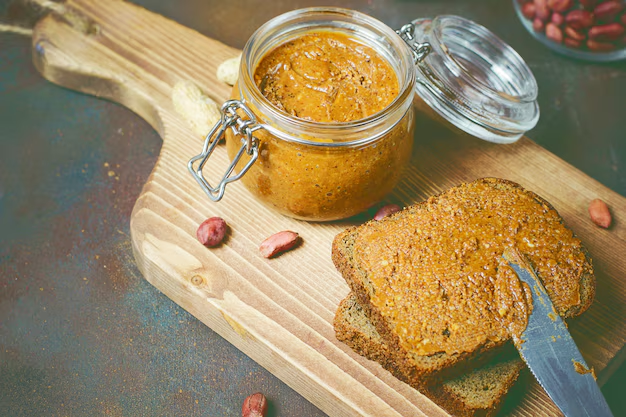How Long Can You Keep Hummus in the Refrigerator? Let’s Find Out!
Hummus, the creamy, protein-packed condiment originating from the Middle East, has found its way into kitchens worldwide. While you might love to slather it on pita bread or use it as a veggie dip, you may also wonder, how long is it safe to keep hummus in the fridge? Understanding the shelf life of hummus not only saves you from unpleasant surprises but also ensures that you enjoy it at its best quality. Let's delve into what dictates the shelf life of your favorite chickpea spread and explore how you can make it last longer.
Understanding Hummus Shelf Life
Hummus has gained popularity as a nutritious and delicious snack, but like all fresh foods, it doesn’t last forever. How long it remains safe and tasty often depends on a few factors: ingredients, packaging, and storage conditions.
Types of Hummus: Store-Bought vs. Homemade
Store-Bought Hummus: Typically, commercially packaged hummus includes preservatives that extend its shelf life. Many brands pasteurize their products, further prolonging freshness. Once opened, you’ll generally find it stays good for about 4 to 7 days in the fridge.
Homemade Hummus: Without preservatives and pasteurization, homemade hummus tends to last for a shorter period. Generally, it can be refrigerated for about 3 to 5 days.
Key Factors Affecting Hummus Longevity
Ingredients: Natural ingredients and the absence of preservatives play a crucial role in determining how long hummus can last. Fresh lemon juice, garlic, and tahini can influence the rate at which hummus spoils.
Storage Method: How hummus is stored directly impacts its lifespan. An airtight container is vital for maintaining freshness, minimizing exposure to air, and preventing the growth of bacteria.
Temperature: Consistent refrigeration at or below 40°F (4°C) helps keep your hummus fresh and safe to consume.
Signs That Hummus Has Gone Bad
To avoid any foodborne diseases, it’s important to recognize when hummus has passed its peak quality. Here are some tell-tale signs:
- Off-smell: A sour or tangy smell is often the first sign of spoilage.
- Texture changes: If hummus becomes watery or develops a grainy texture, it's best to discard it.
- Visible mold: Any signs of mold on the surface mean it’s time to throw it out.
- Taste difference: A sour or overly bitter taste indicates that hummus is no longer safe.
💡 Quick Tips:
- Always use a clean spoon when scooping hummus to prevent bacteria transfer.
- Store hummus in a portion-sized container to reduce exposure when serving.
Maximizing Hummus Shelf Life
To enjoy hummus as long as possible, consider the following storage tips:
Best Practices for Storing Hummus
- Use Airtight Containers: Keep hummus safe by storing it in containers with tight-fitting lids. This minimizes air exposure and helps maintain its creamy texture.
- Avoid Temperature Fluctuations: Consistent refrigeration is crucial. Keep your hummus in the coldest part of your fridge, preferably the back, where temperature fluctuations are minimal.
- Separation Layer: Pour a thin layer of olive oil on the surface of your hummus. This can act as a barrier and slow down spoilage.
Freezing Hummus
Did you know? You can freeze hummus! Here’s how:
- Portion It Out: Transfer hummus into freezer-safe containers leaving some space for expansion.
- Freeze for Up to 4 Months: Hummus can be stored in the freezer for up to 4 months. Thaw it overnight in the fridge before serving.
- Stir Well: After thawing, stir thoroughly to regain its original consistency. The texture may be slightly grainy, but it remains safe and tasty.
Related Considerations
Hummus is more than a simple dip, and understanding how it interacts with different foods and environments can enhance its enjoyment and safety.
Pairing Hummus with Other Foods
- Vegetables and Chips: Hummus pairs wonderfully with fresh vegetables like carrots and cucumbers or with pita chips.
- Sandwich Spread: Use hummus in place of mayonnaise for an added nutritional boost and flavor.
Nutritional Benefits
Hummus is packed with nutrients, including protein, fiber, and healthy fats. Including it in your diet can be a smart way to boost overall health without sacrificing taste.
Quick Reference Summary
Here's a handy table to summarize essential tips and facts about hummus storage:
| Aspect | Details |
|---|---|
| Store-Bought Lifespan | 4-7 days after opening |
| Homemade Lifespan | 3-5 days in the fridge |
| Signs of Spoilage | Off-smell, mold, texture changes, sour taste |
| Storage Tips | Use airtight containers, maintain constant temp, consider a layer of olive oil |
| Freezing | Yes, store for up to 4 months, thaw in fridge |
| Pairings | Vegetables, chips, sandwiches |
| Nutritional Boost | Rich in protein, fiber, and healthy fats |
🛒 Shopping and Storing Hummus:
- Check expiration dates and label instructions when buying store-bought hummus.
- Plan portion sizes ahead to minimize excess thawing and freezing cycles.
In the world of food storage, keeping hummus fresh and tasty is straightforward with the right practices. Now that you know how long hummus lasts in the refrigerator, combined with best storage practices, you can make the most out of this nutritious condiment. Enjoy your hummus knowing it's safe and savor those creamy, delightful flavors whenever the craving hits!

